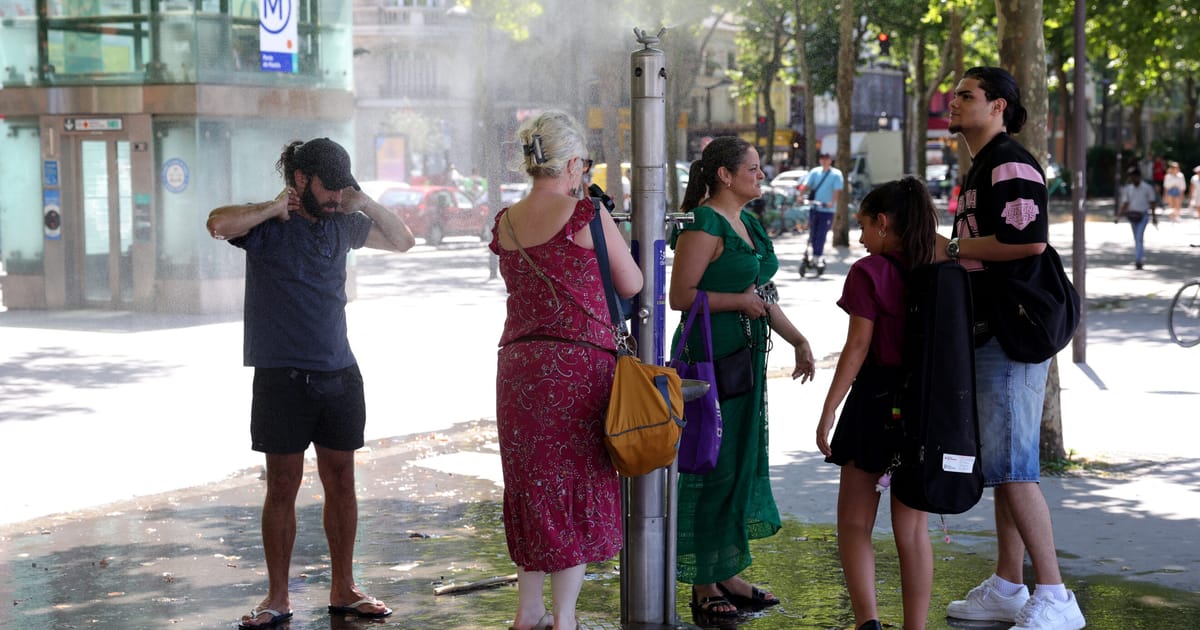

Europe is experiencing a sweeping and intense heatwave, bringing unprecedented temperatures across Southern regions. Countries like Spain have witnessed thermometers reaching an extraordinary 46 degrees Celsius, while nearly the entire mainland of France remains under heat alert. These scorching conditions, attributed to the broader trends of climate change, are becoming increasingly frequent, marking a significant climate challenge for European nations.
The situation has prompted numerous health warnings from authorities across the continent, emphasizing the need for communities to take precautions during these blistering summer months. The United Nations has pointed out that such extreme weather events, exacerbated by fossil fuel emissions, are rapidly becoming the new norm. In light of this, governments and citizens are being encouraged to devise adaptive strategies and enhance resilience against the changing climate.
In response to the rising temperatures, political figures are weighing in with potential solutions to mitigate the discomfort and risks associated with such heatwaves. Marine Le Pen, leader of France’s National Rally party, recently proposed a grand initiative to increase the availability of air conditioning across the country. Highlighting the need for improved heat management infrastructure, Le Pen’s call comes as a bid to ensure public comfort and safety in an era of accelerating climate change.
This proposed plan by Le Pen suggests equipping public facilities and possibly subsidizing residential air conditioning units, aligning with efforts to help citizens cope with the intense heat. As France continues to grapple with high temperatures, the dialogue around effective climate adaptation strategies becomes more crucial. Air conditioning is seen as an immediate relief measure, though it also presents challenges, such as increased energy consumption and potential reliance on fossil-based energy sources.
Le Pen’s proposition underscores a broader trend within European countries to seek sustainable and efficient means of managing heatwaves. As governments explore options, the focus remains on balancing short-term relief measures with long-term sustainability goals, aiming to secure a livable climate future for upcoming generations. The conversation is part of a larger discourse on adapting to climate-induced changes while fostering innovation in energy efficiency and consumption.
Given the recurrent and intensifying nature of heatwaves, Southern Europe finds itself at a critical juncture. Countries like Portugal, Spain, Italy, and Greece are increasingly experiencing the brunt of such climatic events earlier and for longer durations into the traditional summer months. This shift in seasonal patterns drives home the importance of decisive action and community engagement in building climate resilience.
Efforts to tackle these challenges also align with European Union-wide initiatives aimed at reducing carbon emissions and promoting renewable energy transitions. The urgency for comprehensive policies that integrate both adaptation and mitigation strategies is more pronounced than ever. As climate science continues to predict these trends, the dialogue around sustainable urban planning and infrastructure development comes to the fore.
In conclusion, the current heatwave serves as a stark reminder of the ongoing climatic transformations across Europe. With temperatures reaching alarming levels, the call for adaptive measures and sustainable solutions resonates throughout the continent. Leaders and citizens alike stand at a crossroads, faced with transformative decisions that will shape the region’s climate trajectory for years to come. As the heat persists, so does the commitment to finding a harmonious balance between human comfort, environmental stewardship, and the pressing realities of climate change.
Source: {link}
